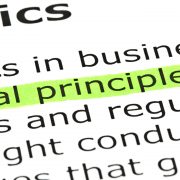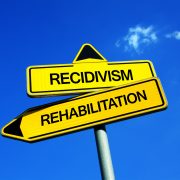The entrepreneurial approach to life expands beyond the business world. Entrepreneurs are empathetic engineers of the future – aiming at a better future for all. In business, they try to improve people’s lives by providing a new service that’s better than anything that’s gone before. People feel happier and more satisfied, and the entrepreneur makes a financial and psychic profit.
The same can apply to everything in life if you take the entrepreneurial approach. Here are four examples of the entrepreneurial approach to life.
- Adam Neumann was raised in a Kibbutz in Israel where he experienced community and inter-dependence. He recognized that many young US professionals were working in isolation on the web, yearning for a place to be with like-minded people, yet have privacy. He founded WeWork: matching local people (through AI algorithms), who work independently or are telecommuting for companies, to reasonably priced shared work-spaces. WeWork purchases and reconfigures offices with amenities, office equipment, and ambience for online virtual work, but also provides a community for individuals who want to meet and have personal contact with those of common interests. WeWork demonstrates how to create communities of spontaneous order with drop-in flexibility that serves both individual business and personal needs. Today, WeWork is valued at $16 billion and has 60,000 participants in cities throughout the US.
- John Yang, a former financial advisor, never married or had children. Now 68 years old, he wants to teach children in a safe, structured environment where he can have the flexibility to plug- in and have autonomy. John enrolled as a substitute teacher in the San Francisco School District. He checks the District Platform the evening before class to see which schools, grades, classrooms, and subject areas need substitute teachers. John can choose to bid on a class, and shows up the next day, ready for work.
- Eve Blossom was appalled at global sex trafficking and wanted to do something about it. Twenty years ago she decided to provide women who were trafficked an opportunity to start a new, self-sustaining life through sales of their crafts and artwork. She founded and directs a B Corporation, Weve, hosted on a global platform. She sources from women in cities and villages anywhere, and places orders for retailers such as Target.
- Malcolm Franks had a career as an interior designer. At age 67, living in Palm Beach Gardens, Florida he was seeking work that would connect him with children in his religious community, give him autonomy, and freedom for a flexible daily schedule that suits his lifestyle. He drives 15 children to religious school in a van each day and returns them home in the afternoon. He also house-sits for several people who live in Florida during six months of the year, taking care of their pets, pools, and household. He uploads photos and videos to the owners of their homes so he can verify his work.
These individuals are all entrepreneurs, operating with different goals and using different means. There is a common theme in these examples.
Start From Values.
Who am I? What do I believe? What are my values? These are the questions entrepreneurs ask of themselves before they embark on any kind of project. Who do I want to help? How can I understand their need?
Imagine The Future.
The entrepreneurial style is not necessarily to be a genius inventor or a technology wizard. Instead, the entrepreneur imagines. Entrepreneurs can imagine a future state, that is better for them, and better for the people they want to help. If you can imagine like this, you can be an entrepreneur.
Take Action.
Having imagined the future, the entrepreneur takes action to bring it about. He or she is confident that they can succeed. They may not know the pathway, nor have they charted every step along the way. But they have a goal and they explore the means to reach the goal, trying different initiatives, abandoning some as ineffective, and doubling down on others that are promising. Action is one of the defining traits of entrepreneurial life.
Measure Results.
Having a noble or elevated goal is not enough. The challenge is to choose the right means to achieve the goal, and objective measurement is only way to tell if you’ve made the right choices. There’s no shirking from results in entrepreneurship.
The examples cited here are taken from the forthcoming book, The Interconnected Individual, by Hunter Hastings and Jeff Saperstein, Business Expert Press, 2018.













